ENVIRONMENTAL JUSTICE
What is Zoning?
Zoning and land use are the fundamental policy tools local governments use to determine what buildings, activities, and businesses can operate within their jurisdiction. Local government land use regulations, usually called a Land Use Ordinance (“LUO”), Land Development Ordinance (“LDO”) or Unified Development Ordinance (“UDO”), are issued by the local government, often a City Council or County Commission, in accordance with an overall Comprehensive Use Plan (“Comp Plan”).
Because these zoning maps dictate a particular land use, such as “residential,” “rural,” “commercial,” or “industrial,” industrial uses tend to become concentrated in particular areas, often in lower-income neighborhoods, resulting in cumulative burdens of pollution, lack of access to green space, lower-quality community infrastructure, and industrial traffic falling disproportionately on lower-income communities, often communities of color. Modern zoning policies have disproportionately adverse impacts on low-income communities and communities of color as a byproduct of historical redlining and other discriminatory policies. These entrenched land use policies systematically sacrifice these communities to predatory economic development and industrial exploitation.
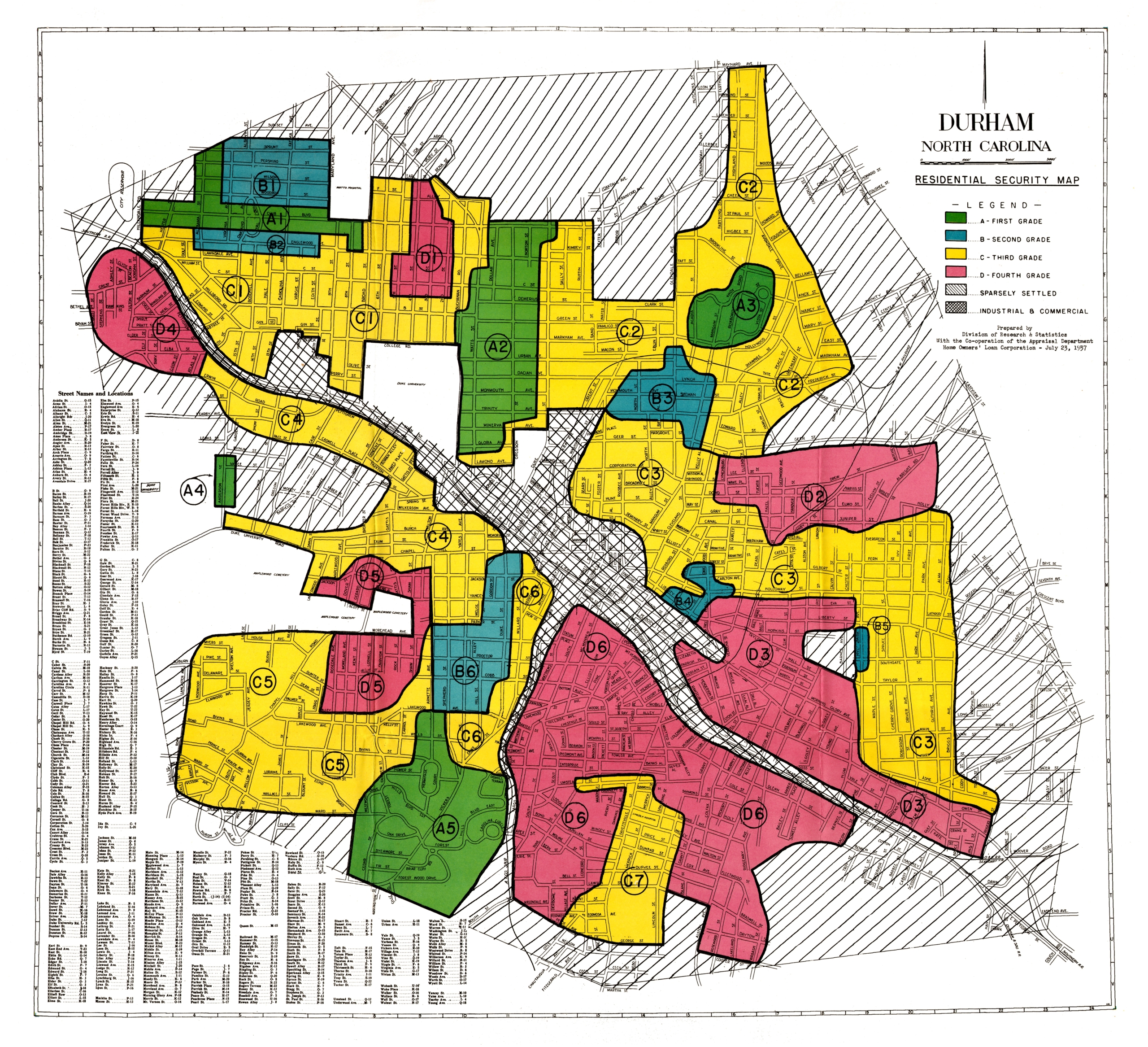
How We Challenge Unfair Zoning & Land Use Policies
Statutes of limitations in zoning and land use matters can be as short as 30 to 60 days, effectively preventing communities from being able to organize, fundraise, and obtain private counsel to challenge adverse zoning determinations. SCSJ aims to fill this gap with rapid response litigation services, bringing zoning challenges on behalf of impacted rural, overburdened, and lower-income communities and communities of color to prevent further concentration of polluting and extractive industries in these areas and advocates for proactive zoning policies like housing diversification and density, affordable housing, mixed-use development, transit-oriented development, and inclusionary zoning. We seek to defend historic Black neighborhoods, low-income communities, rural areas, and Black and Brown property ownership rights from erasure and exploitive zoning processes in the North Carolina courts.
SCSJ provides strategic advice and counseling and testifies at public hearings on behalf of impacted communities in an effort to prevent harmful zoning changes from being enacted, and where possible works with municipal decision-makers, industry representatives, and state and federal government officials to improve environmental justice and avoid the need to resort to litigation where possible.
SCSJ offers communications capabilities and support to community-based organizations to amplify impacted residents’ voices in zoning and land use matters.
Zoning & Land Use Resources
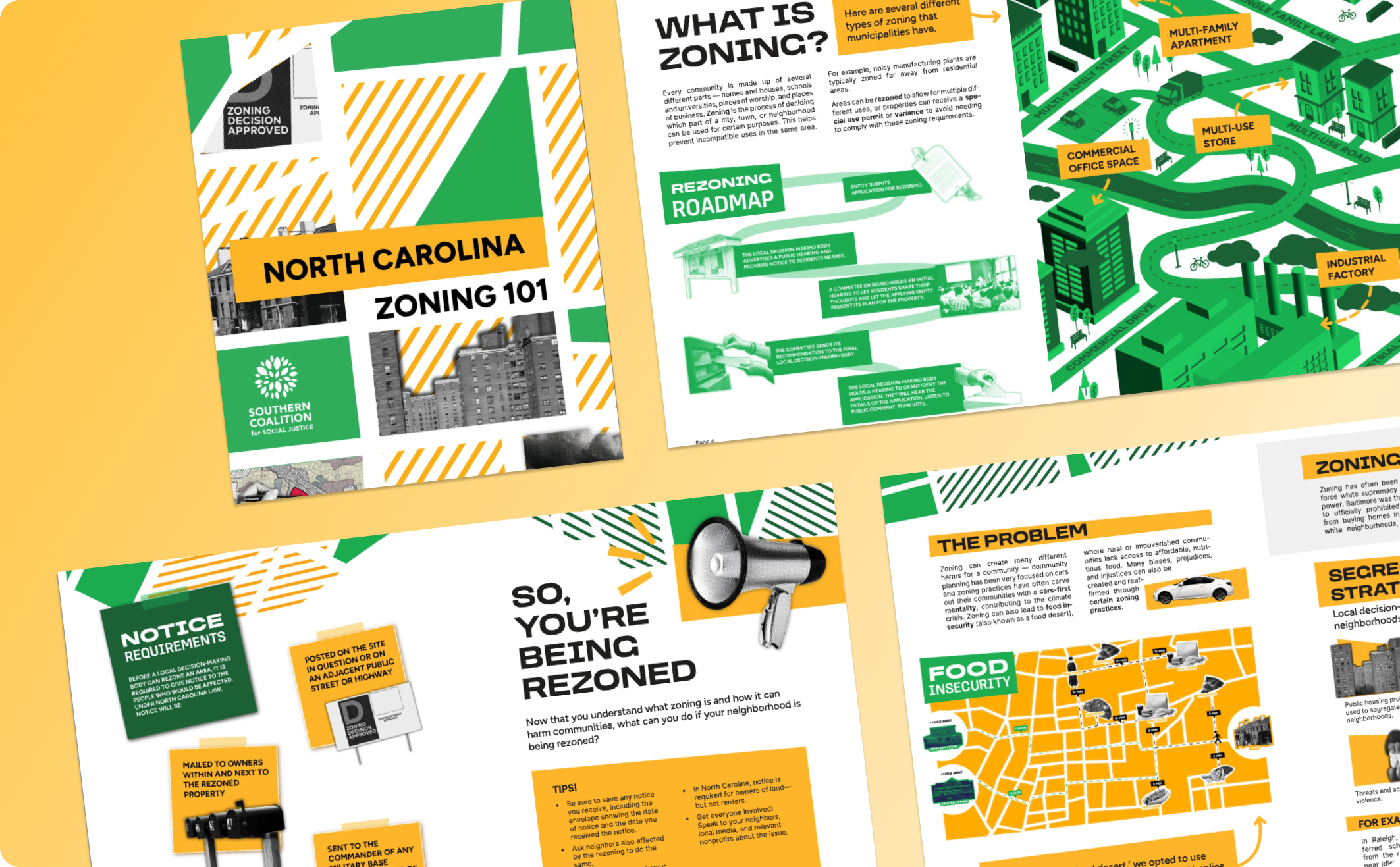
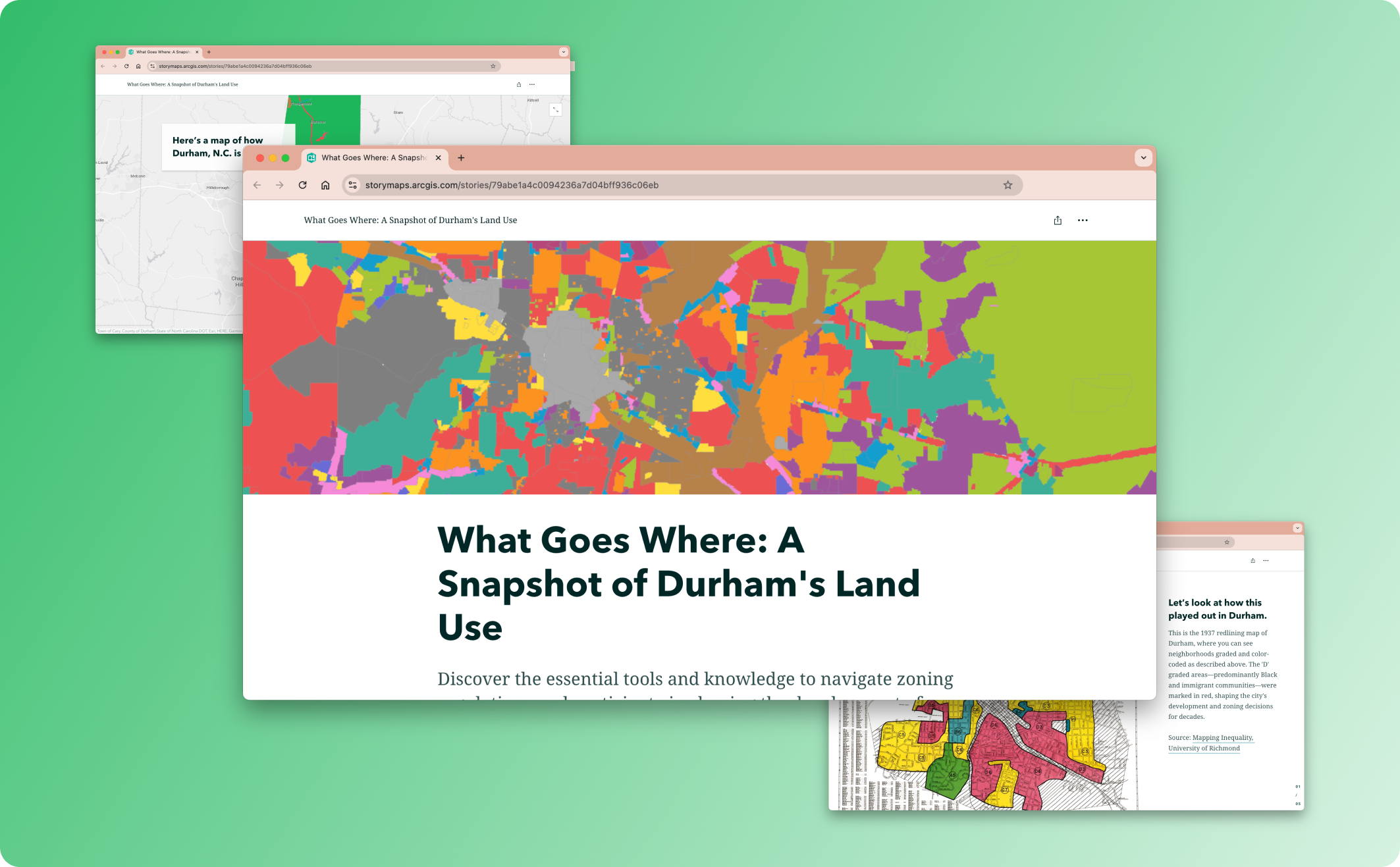
Zoning & Land Use News
SCSJ’s Statement on Appeal in Moriah Energy Center Case
ROUGEMONT, N.C. (Jan. 13, 2025) — Southern Coalition for Social Justice (SCSJ) released the following statement alongside its appeal in Clayton, et al. v. Person County. The case challenges Person County’s rezoning of parcels from rural residential and conservation designations to industrial zoning for the plans of Enbridge – formerly Dominion Energy – to construct…
Read More SCSJ’s Statement on Appeal in Moriah Energy Center Case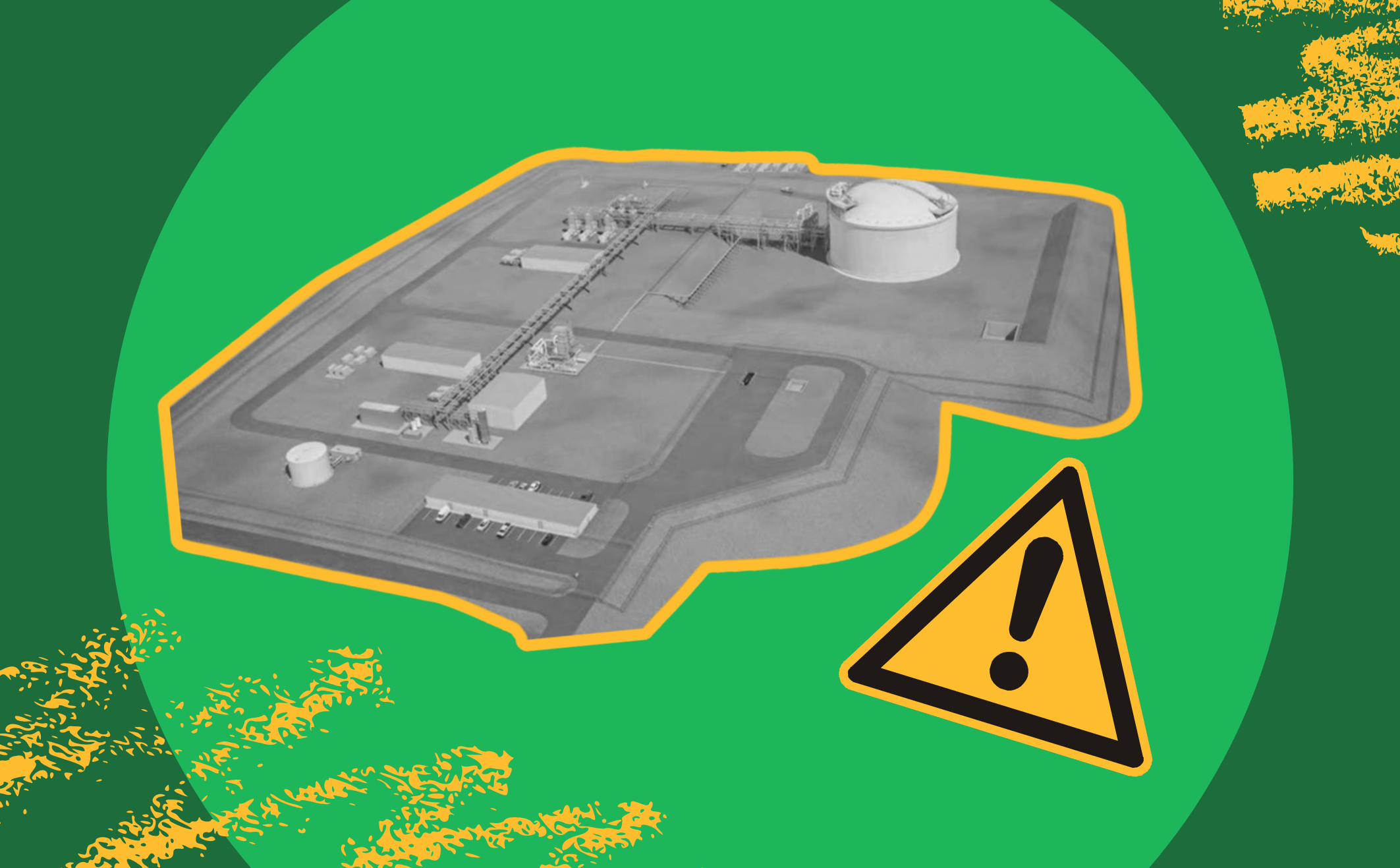
SCSJ, Allies Demand Stronger Protections for Community in Duke Energy’s Roxboro Gas Plant Air Permit
DURHAM, N.C. (Nov. 26, 2024) – Southern Coalition for Social Justice (SCSJ) released the following statement alongside its public comments to the NCDEQ, Division of Air Quality on Duke Energy’s air permit modification request for the Roxboro Steam Electric Plant: “Southern Coalition for Social Justice stands with our allies in condemning Duke Energy’s ill-conceived proposal…
Read More SCSJ, Allies Demand Stronger Protections for Community in Duke Energy’s Roxboro Gas Plant Air Permit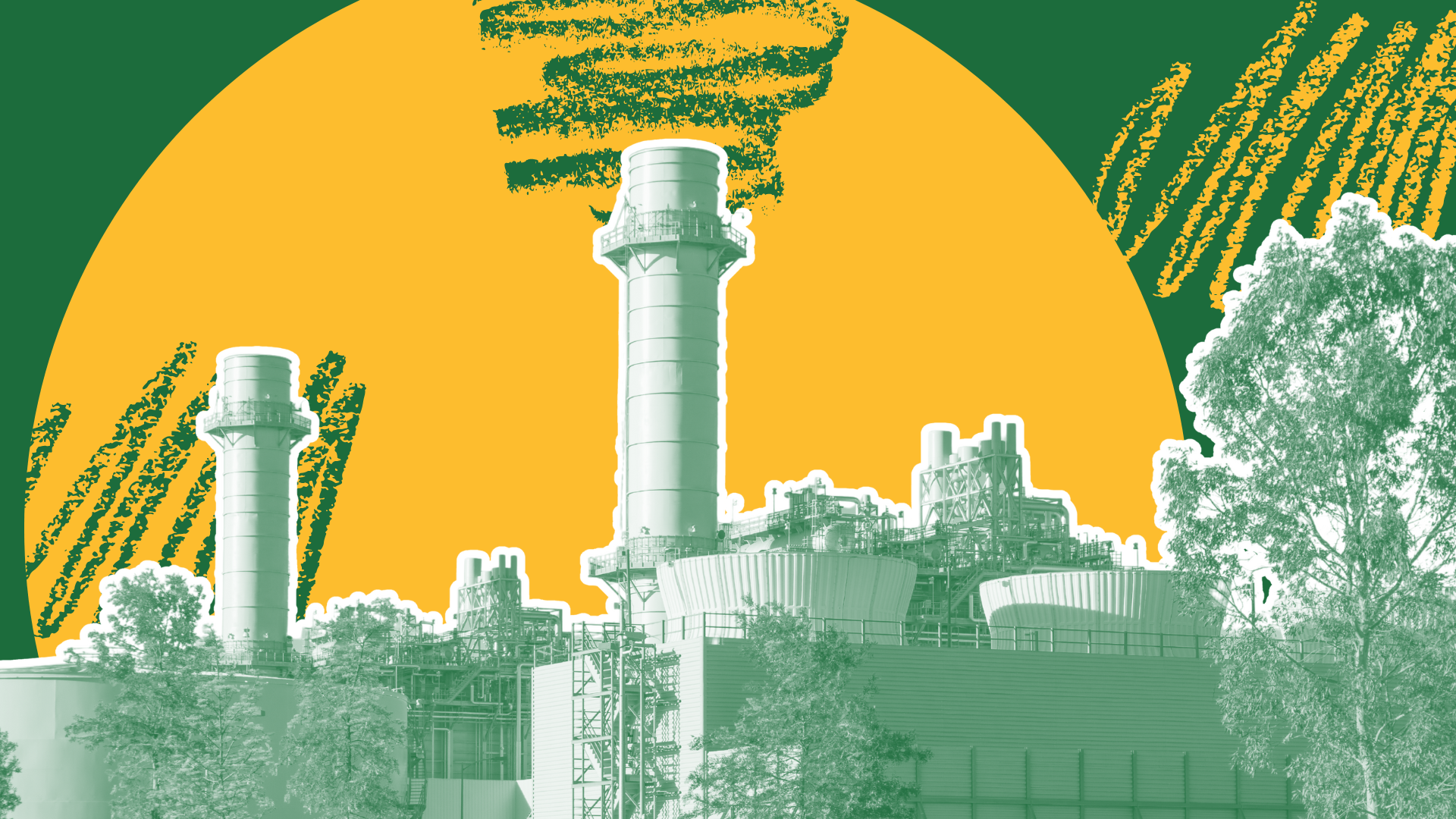
Greenville Community Battles Gas Station Construction by School
GREENVILLE, N.C. (Nov. 22, 2024) – Greenville residents are urging the court to rethink allowing a gas station to operate just 1,000 feet from a middle school, citing health concerns and expert testimony that was unfairly ignored. Southern Coalition for Social Justice (SCSJ) submitted an appeal to Pitt County Superior Court on Nov. 20, 2024,…
Read More Greenville Community Battles Gas Station Construction by School





